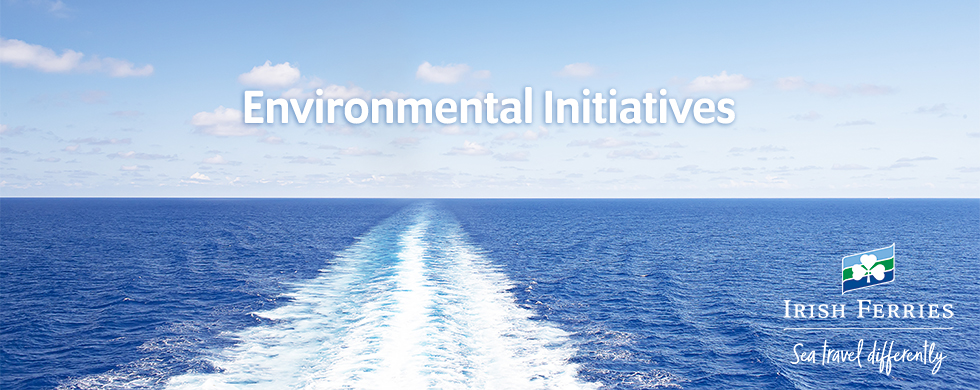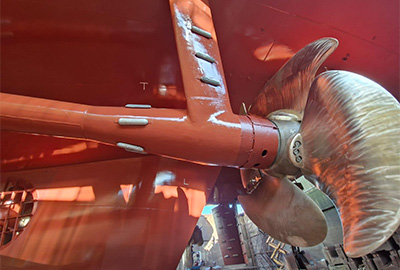
Irish Ferries is a critical transport and tourism provider, and our services play an important role in the wider economies of the countries in which we operate. Despite marine transportation being one of the most carbon-efficient modes of transport, we recognise the need to minimise the impact of our operations on the environment. Irish Ferries ambition is to make its operations more environmentally friendly and reduce harmful air emissions, while continuing to introduce more sustainable practices and initiatives.
Latest Environmental Initiatives
 |
 |
||
 |
 |
||
 |
 |
||
 |
Irish Ferries recognises that all forms of transport, including ships, have an unavoidable impact on the environment. We are committed to reducing negative impacts through:
- Consistent compliance with the International Convention for the Prevention of Pollution from ships (MARPOL 73/78).
- Minimising the consumption of non-renewable fossil fuels.
- Using an oil recovery system to collect all waste oil from our ships. This oil is then recycled.
- Bulk purchasing to reduce the number of deliveries and packaging, and segregation of all waste cardboard packaging for recycling.
- Minimising wave generation, thus minimising disturbance of coastal habitats.
- Painting the hulls of all our ferries with tin-free non-toxic paints to avoid the release of harmful agents into the sea.
- Promoting customer awareness of the marine environment.
- Recycling paper at our Head Office in Dublin.
- Reducing the sulphur content in marine fuels used on all of our vessels in compliance with the requirements of European Directive 2005/33/EC.
- Leading in key projects such as the Green Corridor initiative between Dublin and Holyhead Ports and the international OCEAN project.






